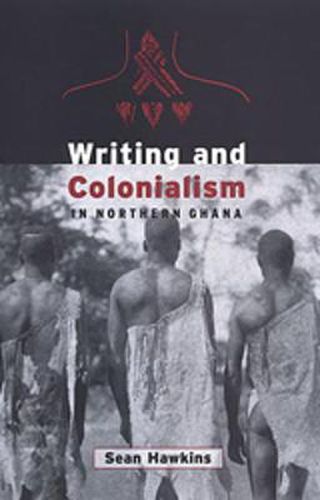Readings Newsletter
Become a Readings Member to make your shopping experience even easier.
Sign in or sign up for free!
You’re not far away from qualifying for FREE standard shipping within Australia
You’ve qualified for FREE standard shipping within Australia
The cart is loading…






This work studies colonialism in Africa. By drawing on the work of a variety of other fields and disciplines - from the ancient Mediterranean to colonial Spain, and from anthropology to psychology - the author argues that colonialism in Africa needs to be understood through the medium of writing. Focusing on the LoDagaa of northern Ghana and their relationship with British colonialism as well as the postcolonial Ghanaian state, Hawkins describes colonialism as an encounter between a world of experience - a world of knowledge, practice, and speech - and the world on paper - a world of writing, rules, and a linear concept of history. The various ways in which writing - as the manifestation of the world on paper - affected the LoDagaa are examined in a series of thematic chapters. The British imposed a form of historical consciousness on different aspects of LoDagaa culture - identity, politics, and religion - that was peculiar to the world on paper . Through colonial and postcolonial courts, the world on paper affected indigenous forms of knowledge, gender relations, and social reckoning.
$9.00 standard shipping within Australia
FREE standard shipping within Australia for orders over $100.00
Express & International shipping calculated at checkout
This work studies colonialism in Africa. By drawing on the work of a variety of other fields and disciplines - from the ancient Mediterranean to colonial Spain, and from anthropology to psychology - the author argues that colonialism in Africa needs to be understood through the medium of writing. Focusing on the LoDagaa of northern Ghana and their relationship with British colonialism as well as the postcolonial Ghanaian state, Hawkins describes colonialism as an encounter between a world of experience - a world of knowledge, practice, and speech - and the world on paper - a world of writing, rules, and a linear concept of history. The various ways in which writing - as the manifestation of the world on paper - affected the LoDagaa are examined in a series of thematic chapters. The British imposed a form of historical consciousness on different aspects of LoDagaa culture - identity, politics, and religion - that was peculiar to the world on paper . Through colonial and postcolonial courts, the world on paper affected indigenous forms of knowledge, gender relations, and social reckoning.